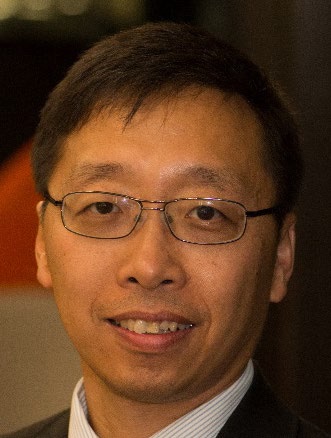Poster Session 4
Session time: 5:35pm – 5:45pm
Location: Ballroom promenade

Sonali S Naik (AcSIR-India/RMIT University)
Poster 4: Harnessing sustainable biomedical solutions with biodegradable Pectin-g-PCL
Sonali S Naik is a final-year PhD student in a joint program between AcSIR-India and RMIT Australia. She completed her bachelor’s degree in biotechnology and is now pursuing her PhD at RMIT. She specialises in the synthesis and fabrication of scaffolds, which are crucial for tissue regeneration and repair. Her work extensively involves the use of additive manufacturing technology, to create these scaffolds.
Poster not available. Please contact the presenter directly.

Nazila Oladzadabbasabadi (RMIT University)
Poster 9: Developing cellulosic bioplastics using non-isocyanate polyurethane and lignin with outstanding properties
As a specialist in biopolymers and sustainable packaging, my research focuses on innovative active packaging solutions to enhance food safety and shelf life. I am passionate about bridging science and real-world applications, developing technologies that promote environmental sustainability and contribute to a greener future.

Donya Ramimoghadam (CSIRO)
Poster 14: A degradable polyurethane thermoset using acylhydrazone chemistry
Donya Ramimoghadam is a CSIRO postdoc research fellow (CERC) working on “recyclable thermoset polymers”. She previously worked as postdoctoral research fellow at RMIT university on thermoresponsive epoxies. Donya pursued her PhD on “Polymers of Intrinsic Microporosity for Hydrogen Storage” from Griffith University. She has developed various functionalised polymeric materials, porous materials for gas storage, mixed matrix membranes for gas separation, and surface-modified nanostructures, etc. She is also well-experienced in wide range of materials characterisation.

Nicholas Jun-An Chan (CSIRO)
Poster 19: Breakdown by design: sustainable polymeric material processing for insect degradation
Nicholas Jun-An Chan is a postdoctoral fellow at CSIRO, having received a Joint PhD between the University of Melbourne and the University of Bayreuth. His current research focuses developing polymeric materials from their monomeric molecular precursor to their final, processed product while focussing on the subsequent end fate of the material.

Nugroho Adi Sasongko (IPPIN/BRIN)
Poster 21: Challenges and prospects of multilayer plastic waste management: a systematic literature review

Yujiao Wu (CSIRO)
Poster 24: Li-DETR transformer for efficient floating litter detection
Yujiao Wu (Olivia) received her PhD from the University of Technology Sydney. Her research includes AI applications in solving real-world problems. She has worked on medical imaging, non-invasive bioinstrumentation, and environmental monitoring. As a CERC fellow at CSIRO, her current work focuses on developing innovative object detection algorithms for efficient plastic waste monitoring and management in the environment.

Dana Griffiths (Murdoch University)
Poster 29: Comparative genomics of the highly halophilic Haloferacaceae
Dana is a PhD candidate at the Bioplastics Innovation Hub at Murdoch University with a background in bacterial synthetic biology. Her passion for extremophilic microbial species shifted her focus to the archaea. She is now developing a range of synthetic biology tools for haloarchaea to address global challenges such as plastic waste.

Richard Yang (Western Sydney University)
Poster 34: Influence of printing parameters on mechanical properties of recycled PET and PETG using fused granular fabrication technique
Prof Richard Yang is the Director, Centre for Advanced Manufacturing Technology, and the Professor, Mechanical Engineering, Western Sydney University. His main research focuses include Advanced Manufacturing, Additive Manufacturing, Industry 4.0, Polymers, Composites and Nanocomposites, Recycled Thermoplastics for Sustainability & Circularity, Numerical Modelling & Simulations, etc. He is leading the subset projects on 3D Printing of recycled polymers and composites funded via the CSIRO/NSF Convergence Accelerator Program (Phase 1 & 2: 2022-2026).
